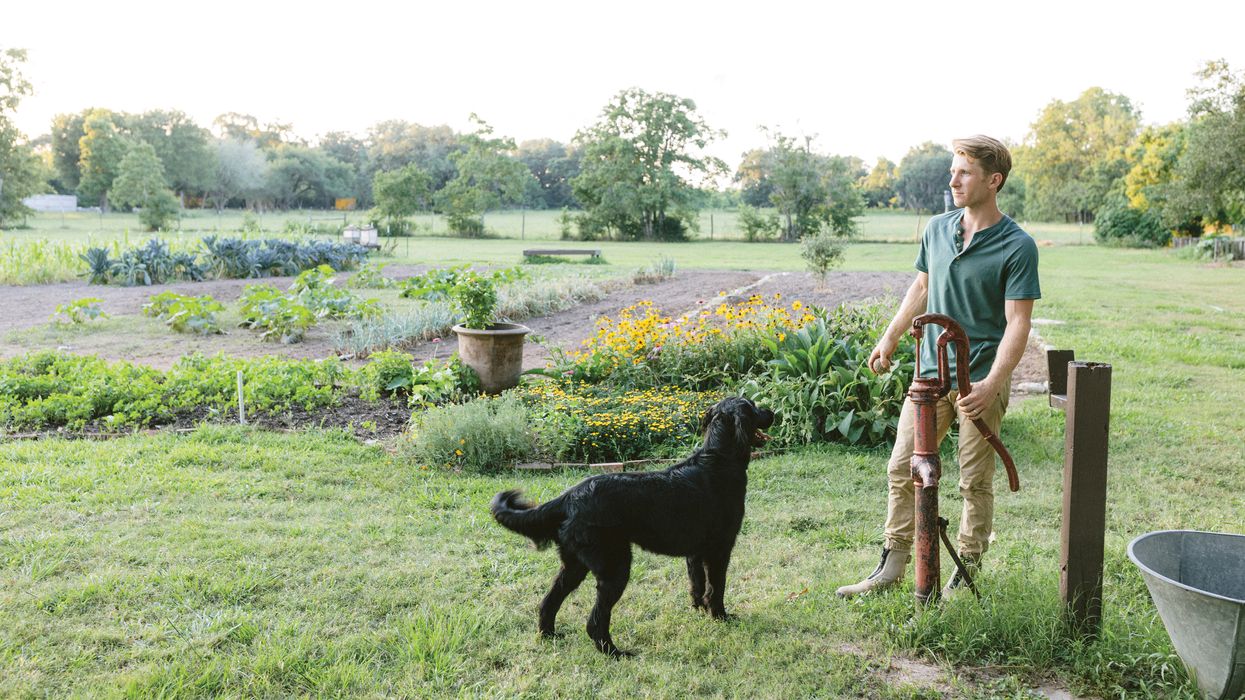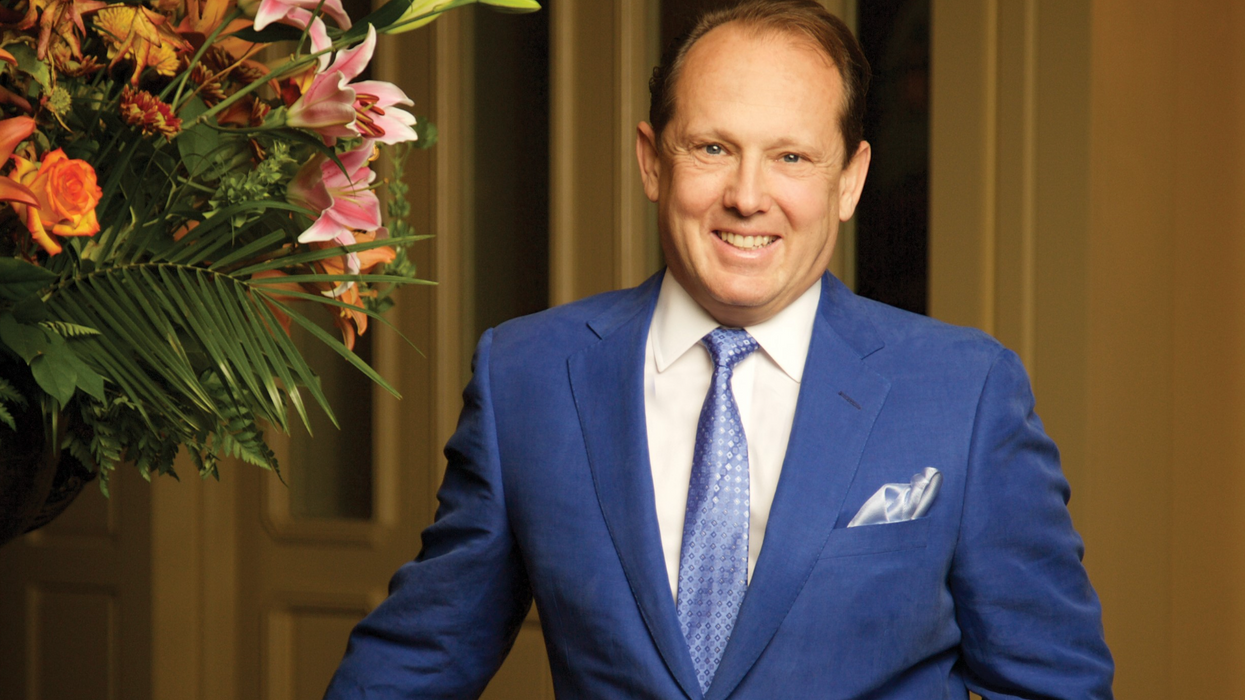On the Grow: Sustainable Harvesters Finds Fertile Ground for a New Kind of Eco-Friendly Farming

Braud and his loyal farm dog, Sophie
Forty miles northwest of Downtown, amid fields of grass, oak trees and white picket fences in the picturesque town of Hockley, lives Sustainable Harvesters, a 167-acre property with five greenhouses comprising 20,000 square feet of growing space. Launched by business partners Matthew Braud and Andrew Alvis in 2013 upon graduation from the LSU College of Agriculture, the farm is one of few commercial aquaponic farms in the country, and the largest in Texas.
Though not yet a household name, aquaponics is a unique farming method that combines the benefits of aquaculture (raising fish in a controlled environment) and hydroponics (growing plants without soil). In short, the process collects the waste product from the fish, and filters it into a nutrient that plants can soak up before sending the clean water back into the fish tanks. Not only does this closed-loop system save resources — it uses only 10 percent of the land and 10 percent of the water compared to traditional farming! — it also yields high-quality consistent produce year round. For that reason, aquaponics is among the most profitable farming approaches, with the market projected to reach $870 million by 2022, up from $524 million in 2017, according to Business Wire.
Braud and Alvis, both Houston natives, rode the wave of the sustainable market, as well as the major restaurant boom in Houston. "We saw a huge explosion of fine-dining restaurants in Houston … and that helped our business plan, and helped bolster our clients in the beginning," says Braud, fit and handsome and very hands-on in the greenhouses. "There was a demand out there."
Early on, the partners sold 95 percent of their greens (kale, lettuce, celery, and more) wholesale, to restaurants in Houston, Dallas and New Orleans. But the pandemic wholly shifted that model, prompting the team to flip those numbers around, and sell only about 5 percent wholesale to restaurants, and 95 percent direct-to-consumer. "It really opened our eyes to see that this market that we thought was impenetrable had a huge downfall, and it can happen again," says Braud. "We've put a lot more emphasis on branding, consistency and packaging in the meantime."

And that has taken the shape of a $48 produce box available for home delivery that includes different types of produce like lettuce, baby kale, onion, tomatoes, cucumbers, celery, edible flowers and more. "In the beginning, it was great because it was offering people something they needed without having to go to the grocery store," says Braud, who earlier this fall spun off the Southern Garden Honey brand of 100 percent raw and organic honey. The team is now focusing on Farmers Markets across town, where clients can preorder their veggie box for pick-up. Currently, Sustainable Harvesters visits the Heights Market in Heights Mercantile twice a month, and Urban Harvest every Saturday.
The team is also gearing up to refocus some energy on wholesale, thanks to new partnerships with organizations like the Houston Food Bank and the Houston Zoo. This presents an opportunity not only to make use of excess produce, but also to focus on outreach and education.
"I want this to be a household name for aquaponics," says Braud, noting he offers consulting for startup farms in Africa, India and China, and wants to expand to offer virtual classes. "There's a huge demand for this technology. We can expand people's minds by giving them the opportunity to come to greenhouse tours and classes … and let everyone else pick up where we left off to solve the world's problem of lack of food."
- Yams? Leafy Greens? Erotica? Buy Something at the Farmers Market! The Farmers Need Us Now - Houston CityBook ›
- Urban Harvest Cultivates Fun with New Membership Group, Kickoff Party - Houston CityBook ›
- Here's How to 'Feel Good' at The Ion’s New Outdoor Market - Houston CityBook ›
- Want to Start a Farmers Market? Go-To Guru Casey Barbles Knows All the Fun, Healthful Tricks - Houston CityBook ›
- Two New Downtown Farmers Markets Sprout This Week - Houston CityBook ›






 Molina's 'LaTierra Recuerda'
Molina's 'LaTierra Recuerda' Thirumalaisamy's 'provision'
Thirumalaisamy's 'provision'